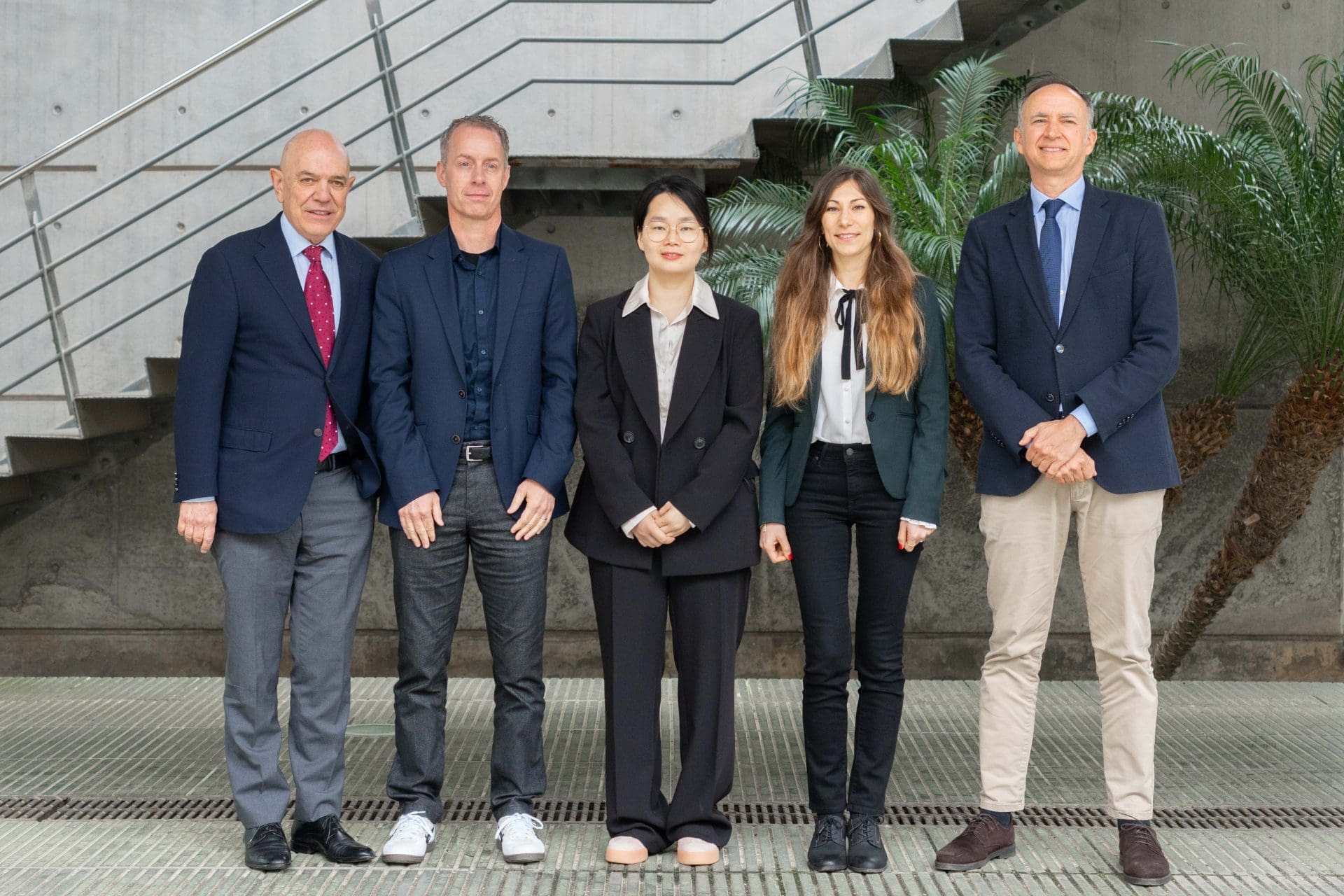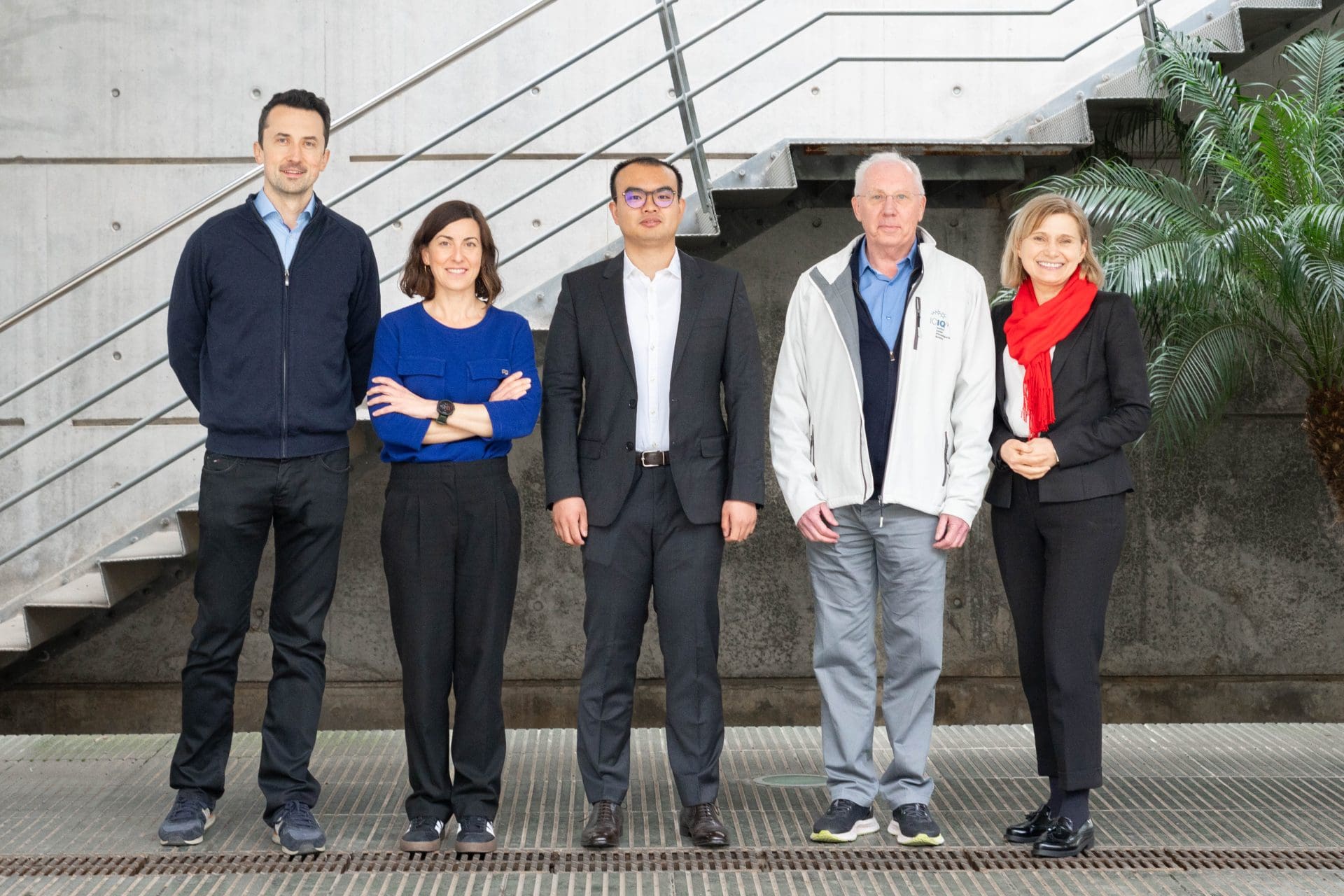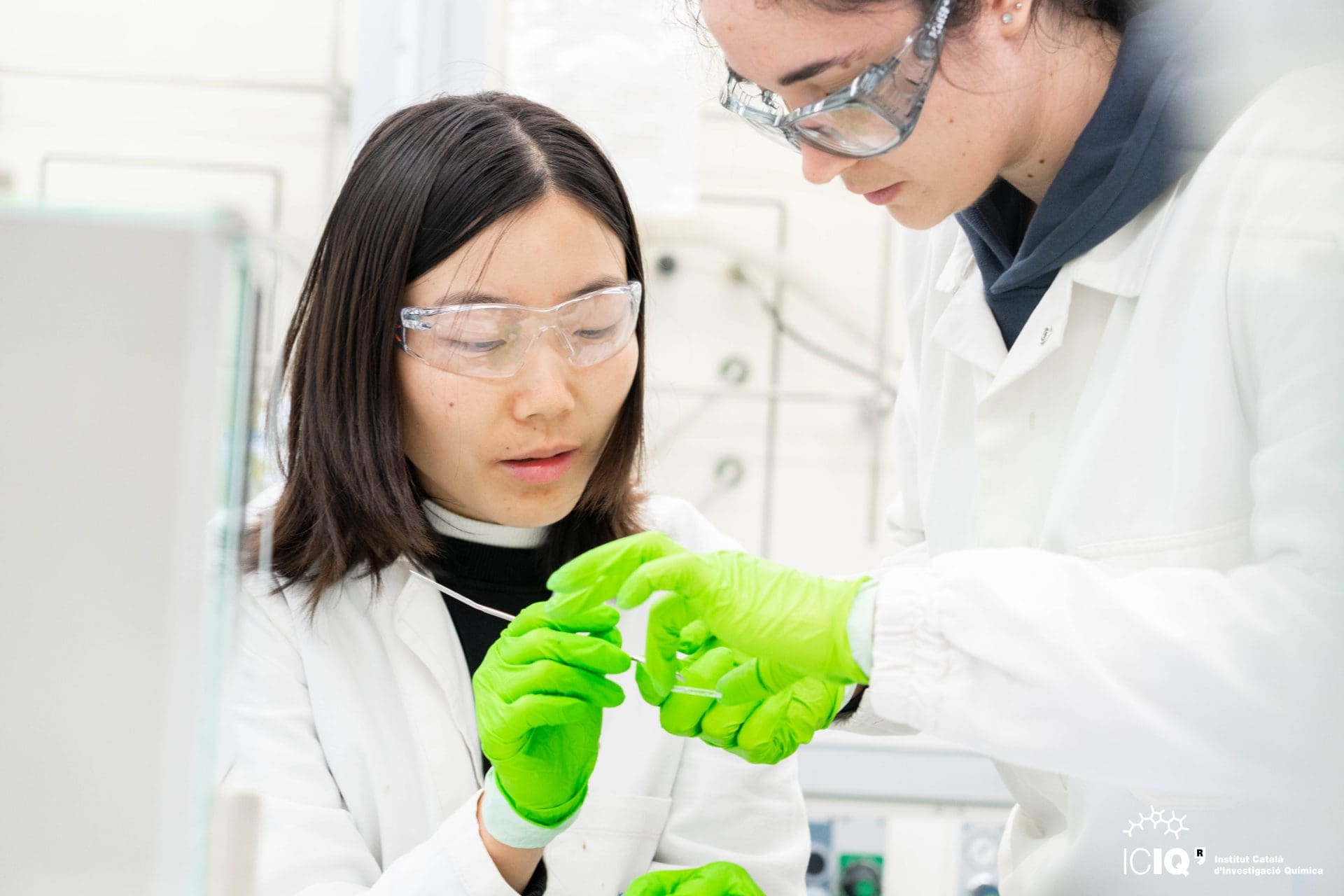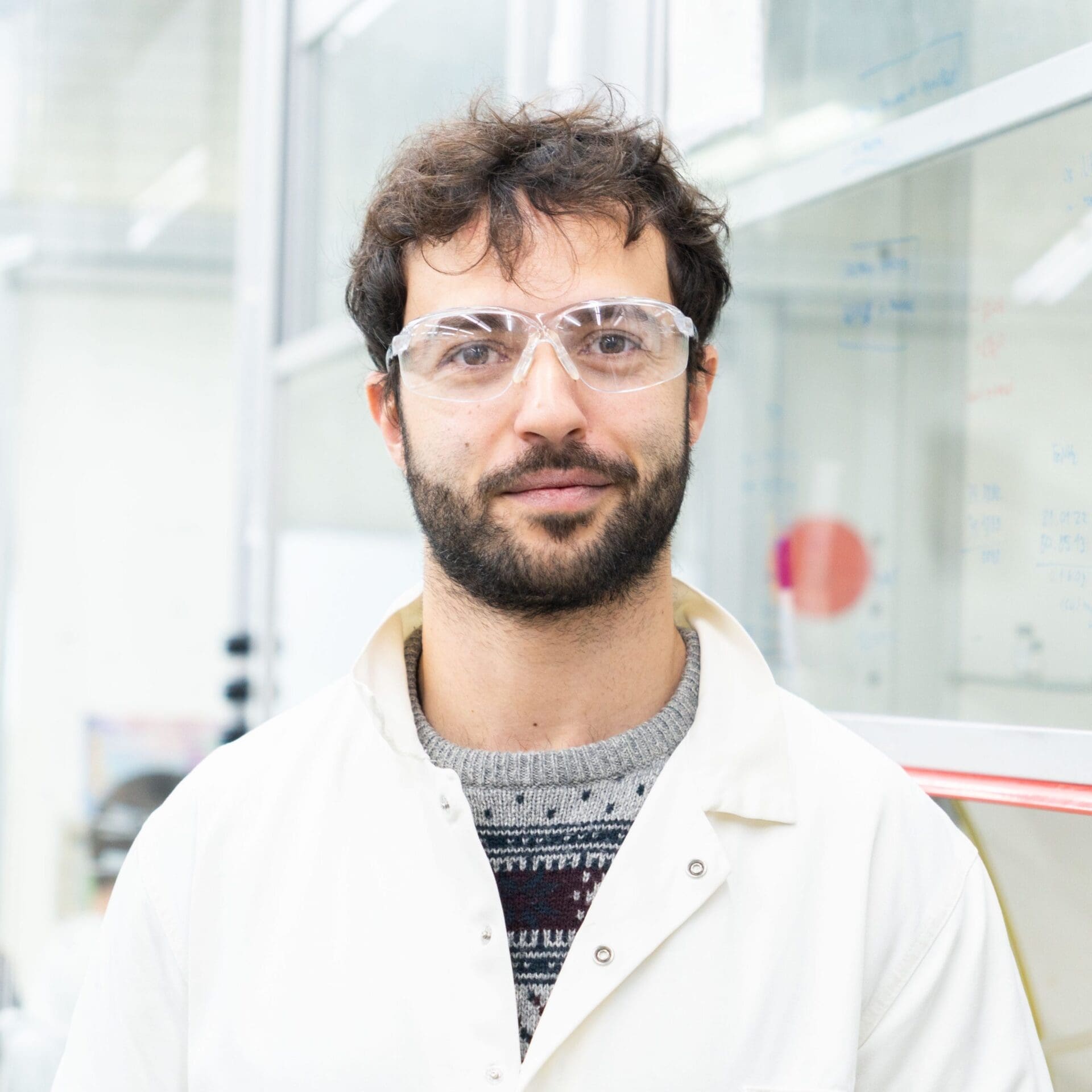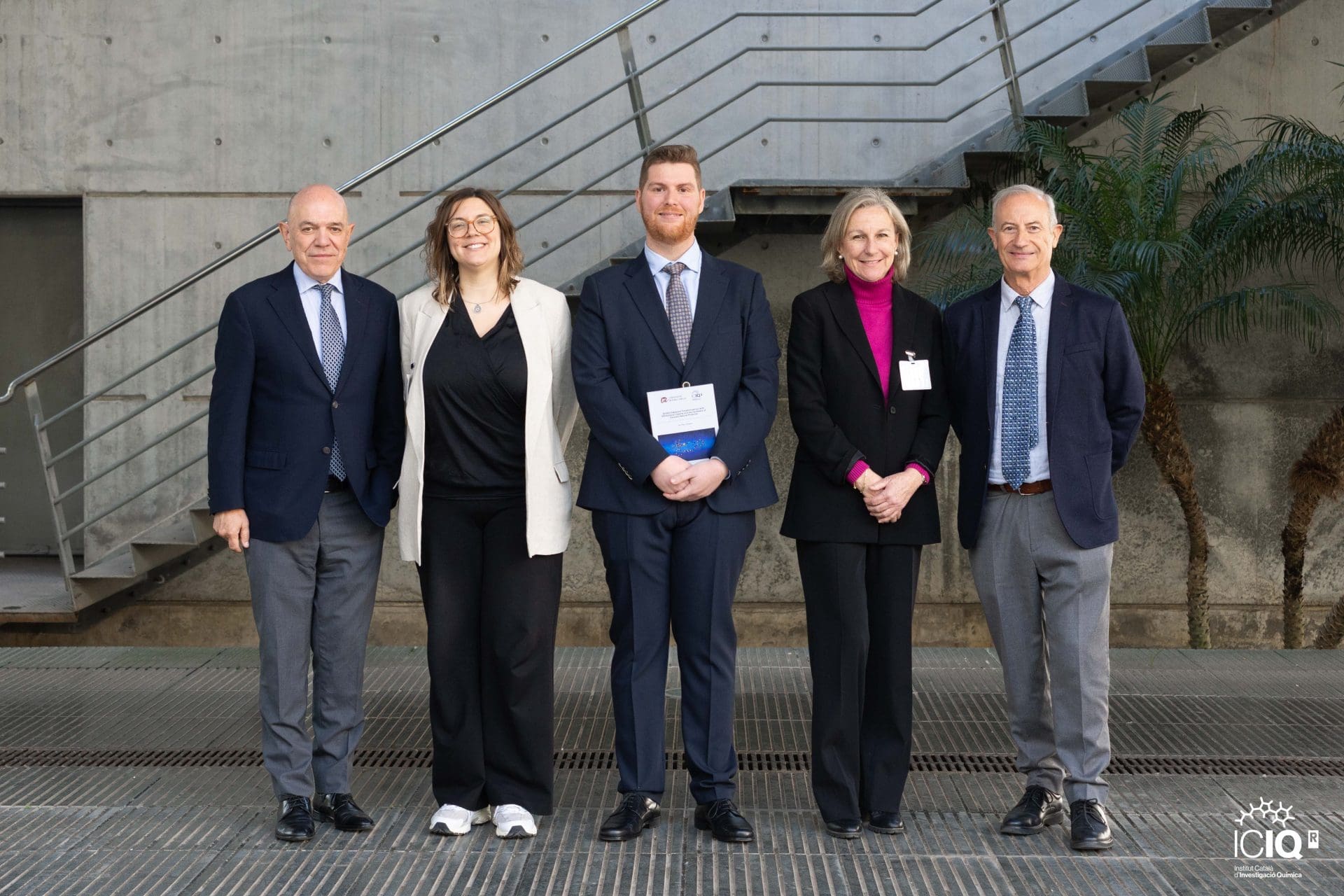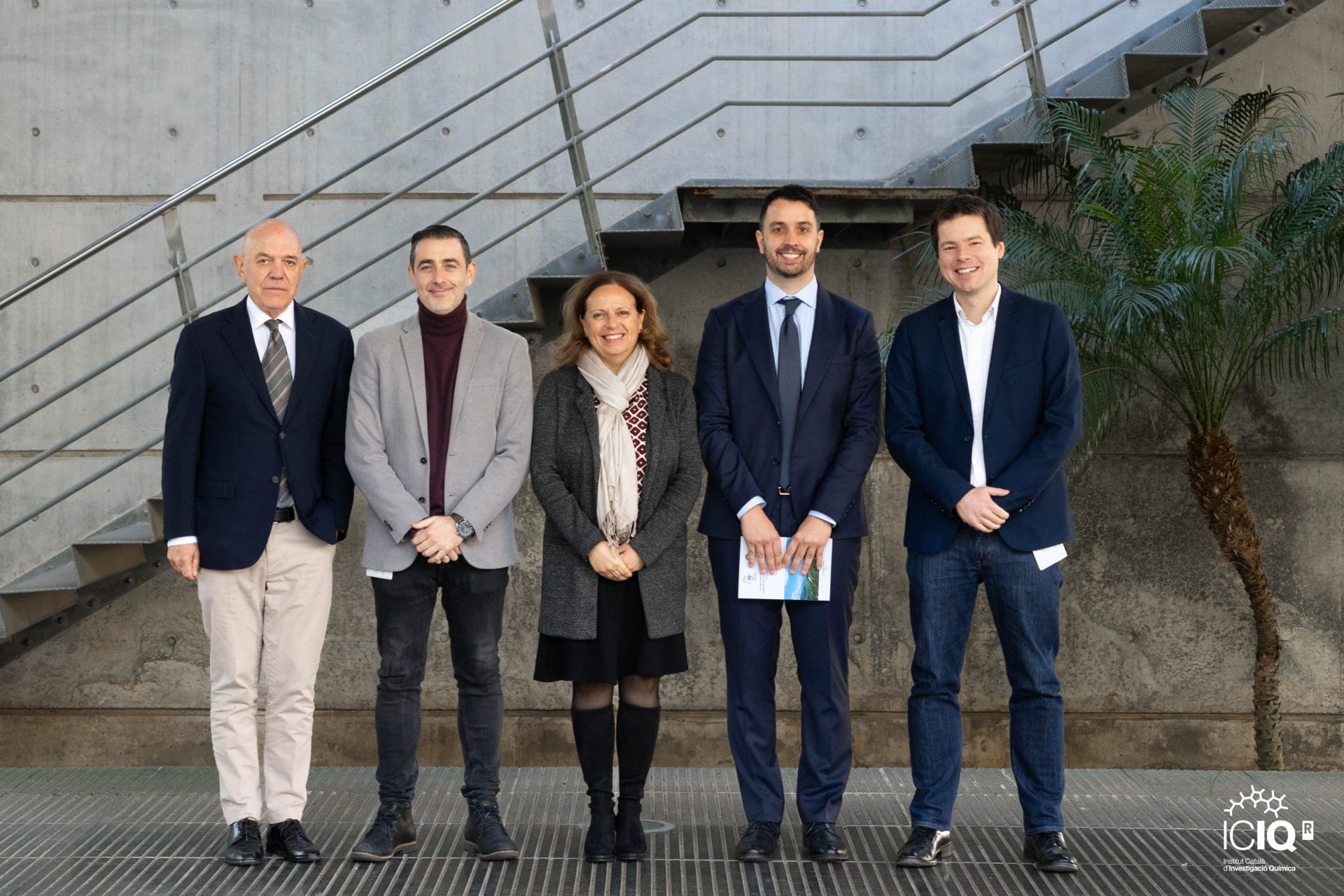恭喜, Dr. Lyu!
Xinyang Lyu, PhD student under the supervision of Prof. Ruben Martín (ICIQ), has defended his thesis entitled “Nickel/Copper-Catalyzed C-C and C-N Bond Forming Reactions to Forge sp3 Carbon Linkages” publicly on October 16th.
The members of the evaluation committee were Prof. Montse Diéguez (URV), Prof. Dr. Martín Fañanás (Universidade de Santiago de Compostela) and Prof. Dr. Clement Mazet (Université de Genève, Switzerland)

Dr. Lyu is from Dalian city in Liaoning province, China. He got his bachelor’s degree in chemistry from the Lanzhou University and a master’s degree in organic chemistry from the Nankai University. After that, he started his PhD at ICIQ with a Chinese Government Scholarship from the China Scholarship Council (CSC). During Xinyang spare time, he likes travelling and photography.
Why did you become a scientist?
I think the reason is I’m a very curious person. I like the process of discovery.
What do you want to achieve as a scientist?
To disclose some unconventional mechanism and pathways and utilize the mechanism for some very cool transformations.
What is your thesis about?
This thesis is about methodology development that utilizes a transition metal catalyst to form C-C bond and C-N bond of ketone derivatives and alkyl halides.
What triggered your interest for the subject of your thesis?
I’ve been always interested in developing some new transformations with transition metal catalysis. Classical transition metal catalysed cross-coupling are facing several limitations, which raised my passion to explore new methods to overcome these limitations with new emerging techniques.
What applications can your thesis have in the future?
The techniques developed in this thesis offer an unconventional disconnection within the retrosynthetic planning phase of synthesis and can be used for the derivatization of some advanced carbonyl containing compound.
The thing that I like most about my thesis is….
The thing I like the most about my thesis is to realize a ketone C-C bond functionalization technique which otherwise needs harsh reaction conditions or not even accessible.
What do you wish you had known at the beginning of your PhD?
I wish I had known that there would be a time when I faced a lot of difficulties and it seemed no solution. It is important to keep optimistic, positive and seeking for solutions.
What advice do you have for someone who’s starting their PhD now?
Don’t be afraid to fail. Think more and try more.
Have you ever been emotional over an experiment/simulation? Why?
I have been emotional over my second project because I encountered many experimental failures. But in the end the issues were successfully solved, and the results turned out to be not bad.
Who has been your biggest influence/motivation?
My supervisor Prof. Ruben Martin, an expert in organonickel chemistry. I can always get priceless suggestions from him.
If you were a piece of lab equipment, what would you be?
I would choose a rotavap. It plays a crucial role in organic synthesis. We need to use rotovap every time if we want to concentrate some compound.


Related news

Let's create a brighter future
Join our team to work with renowned researchers, tackle groundbreaking
projects and contribute to meaningful scientific advancements






 07-03-2025
07-03-2025 